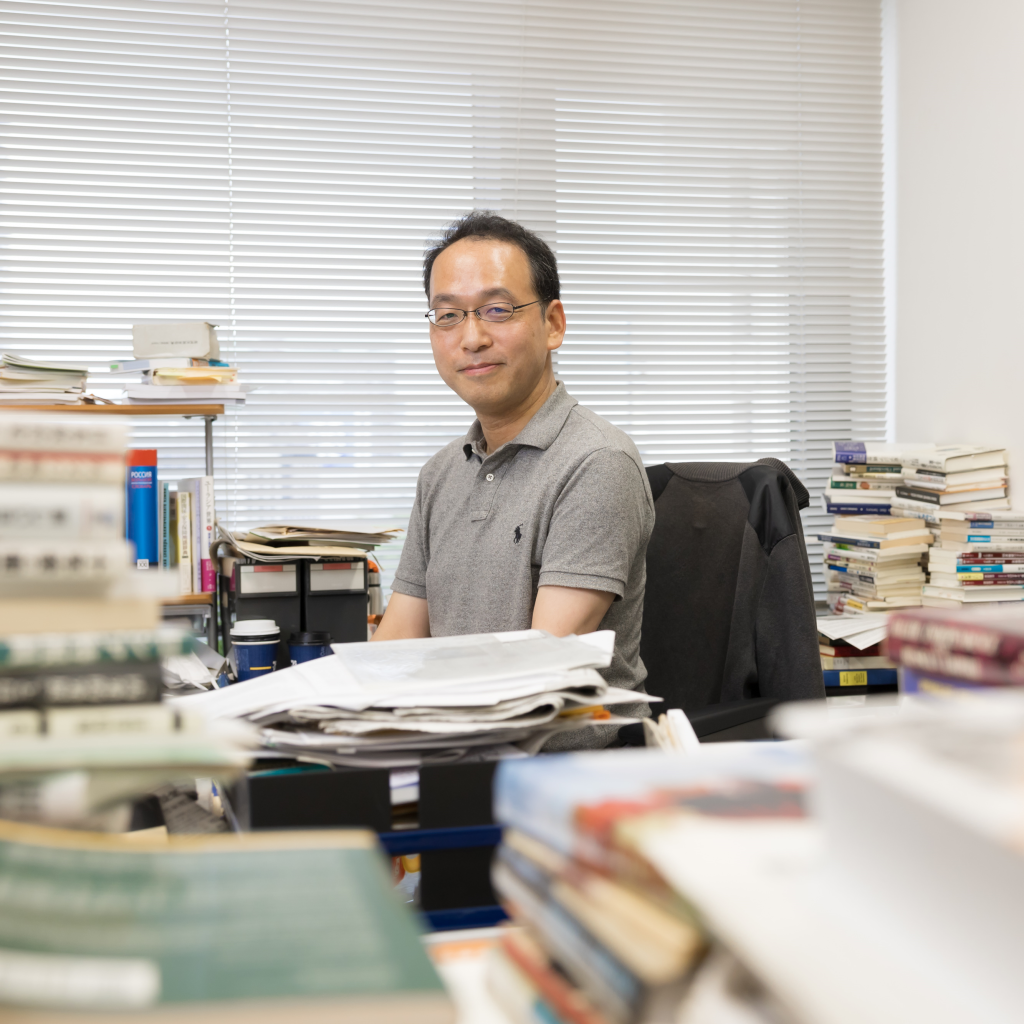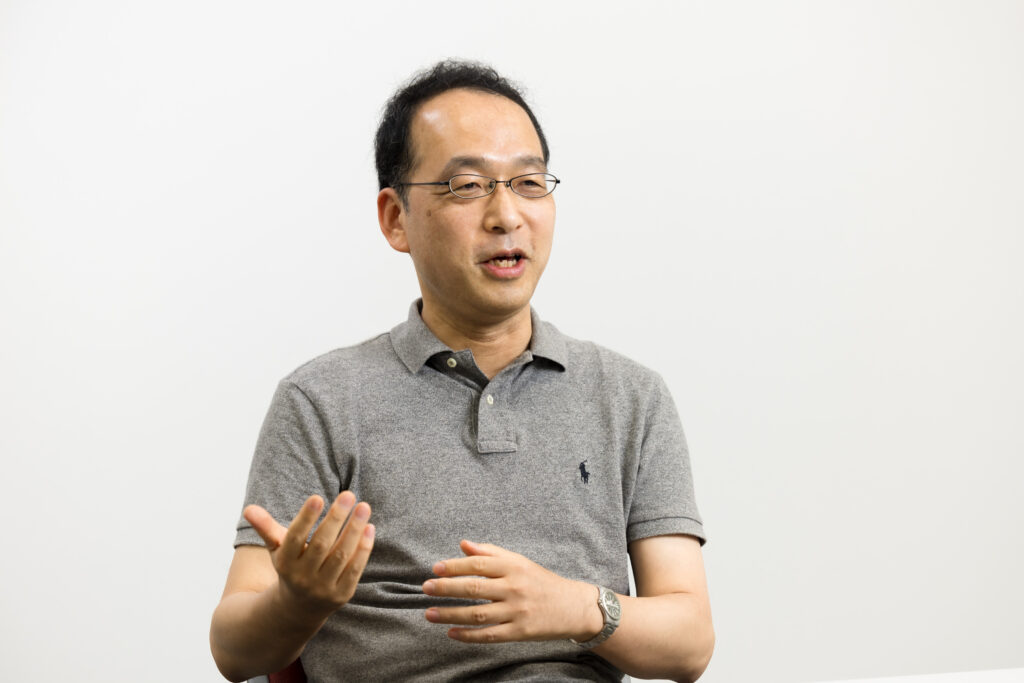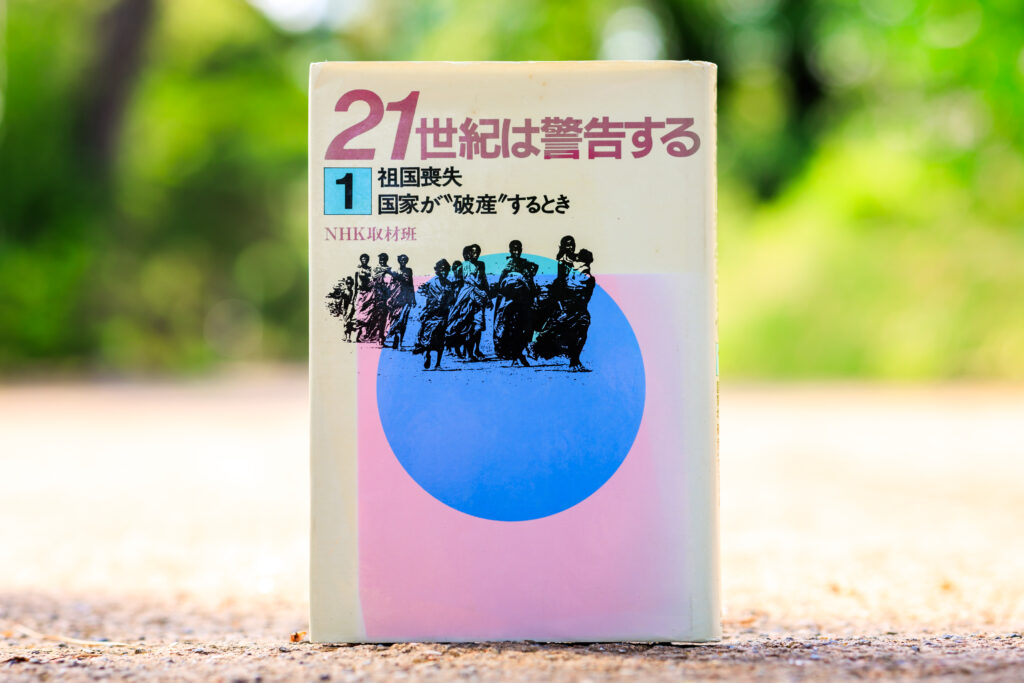
A specialist in international relations and political science, Professor Takeshi Yuasa of the Faculty of Foreign Studies conducts research into the security, political changes, and regional organizations of countries that comprised the former Soviet Union. Through understanding the multilateral issues and characteristics of the former Soviet Bloc, he seeks to identify methods for establishing peace in the region.
My fields of specialty are international relations and political science. The Union of Soviet Socialist Republics was dissolved in 1991, leading to the emergence of 15 independent states. I have an interest in and conduct research into the security, political changes, and regional organizations of these former Soviet states.
The Soviet Union was a federation of republics, each of which was named after its main ethnic group (titular nation), and the majority of its land area was composed of present-day Russian Federation. The Soviet Union also counted republics like Ukraine and Belarus, whose titular nation were, like Russia, Slavic, among its membership, as well as republics with non-Slavic populations with distinct religions and cultures.
The relationship between Central Asia and Russia remains complex

For many years, my research has focused on the five Central Asian countries of Kazakhstan, Kyrgyzstan, Uzbekistan, Turkmenistan, and Tajikistan. From the 19th century onward, these countries came under the rule of the Russian Empire, and they were subsequently controlled politically as part of the Soviet Union. The populations of these countries are largely Turkic and Persian, and follow Islam. They are closer in character to the rest of Asia than to Russia; however, as a consequence of many years of Soviet rule, they continue to be strongly influenced by Russia, and the Russian language still functions as a lingua franca on official occasions and in urban areas. Despite being culturally distinct, these five countries are therefore unable to shake off their political and social ties to Russia.
When it comes to security, the relationship between these five post-Soviet states and Russia remains ambiguous. Let us take Kazakhstan as an example. Although it is situated in Central Asia, it shares a border with Russia. In January 2022, Kazakhstan allowed troops from the Collective Security Treaty Organization (CSTO), a military alliance headed by Russia, to quell domestic unrest. In this way, in their dealings with Russia, the leaders of these Central Asia countries consider the possibility of various Russian interventions.
Researching methods to establish peace in response to changing forms of warfare
During my time at the National Institute for Defense Studies—a research institute run by the Ministry of Defense—I started to focus more deeply on issues related to the security of Russia and Central Asia. In the course of my research, I naturally visited various regions in person and scrutinized statistical data; but I also took care to digest public information transmitted via various forms of media, including newspapers, TV, and social media. Even in countries where, compared to Japan, levels of political freedom are low, an unexpectedly large number of people express views critical of governments and leaders. I ruminate over such information in my own way, seeking to identify core issues, and so obtain an understanding of the status quo and analyze regional affairs.
The primary focus of my research is to consider methods for establishing peace in Central Asia, based on its unique regional characteristics: For these countries to live in peace and with greater security, what methods must they implement? What issues do they face?
I believe that military force acts as an important deterrent, allowing countries to maintain favorable relations and people to live in peace. However, it is a double-edged sword. There is a risk, for example, that nuclear weapons intended to act as a deterrent might, as hostilities escalate, come to actually be used in battle. This also relates to another question that I wish to continue exploring: what sort of policies should countries adopt for the peaceful use of nuclear energy? I am also engaged in research into the “Siberian Internment” of Japanese prisoners of war, and the Soviet-Afghan War of the late 1970s and 1980s. I intend to continue my research in an unbiased manner, collaborating at times with politicians and other experts.
The book I recommend
“21 seiki ha keikoku suru: 1. sokoku soshitsu kokka ga ‘hasan’ surutoki ”(The Warnings of the 21st Century: 1. Losing the Motherland—when nation states declare “bankruptcy”)
by the NHK Reporting Team, NHK Publishing

This book is compiled from a documentary series broadcast by the Japanese Broadcasting Corporation (NHK). Through this book, I learned of various tragedies actually occurring in the world, such as people suddenly losing their homelands and becoming refugees. I was a high school student at the time, but the book had a huge impact on me. In fact, it is the starting point for my current research.
-
Takeshi Yuasa
- Professor
Department of Russian Studies
Faculty of Foreign Studies
- Professor
-
Professor Takeshi Yuasa graduated from the Department of Russian Studies at Sophia University; he completed his doctoral coursework at the Graduate Program in International Relations, Sophia University, without obtaining a degree. After working as a Senior Fellow at the Ministry of Defense’s National Institute for Defense Studies, Yuasa worked as a professor at the Hiroshima Peace Institute. He was appointed Professor of the Department of Russian Studies at Sophia University in 2019.
- Department of Russian Studies
Interviewed: June 2022